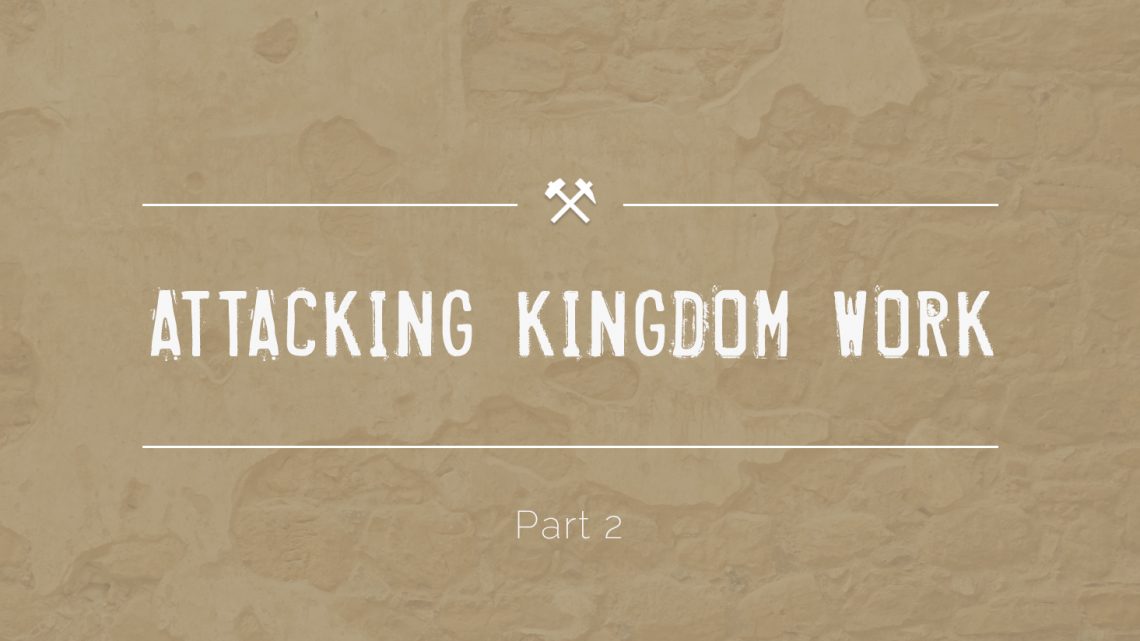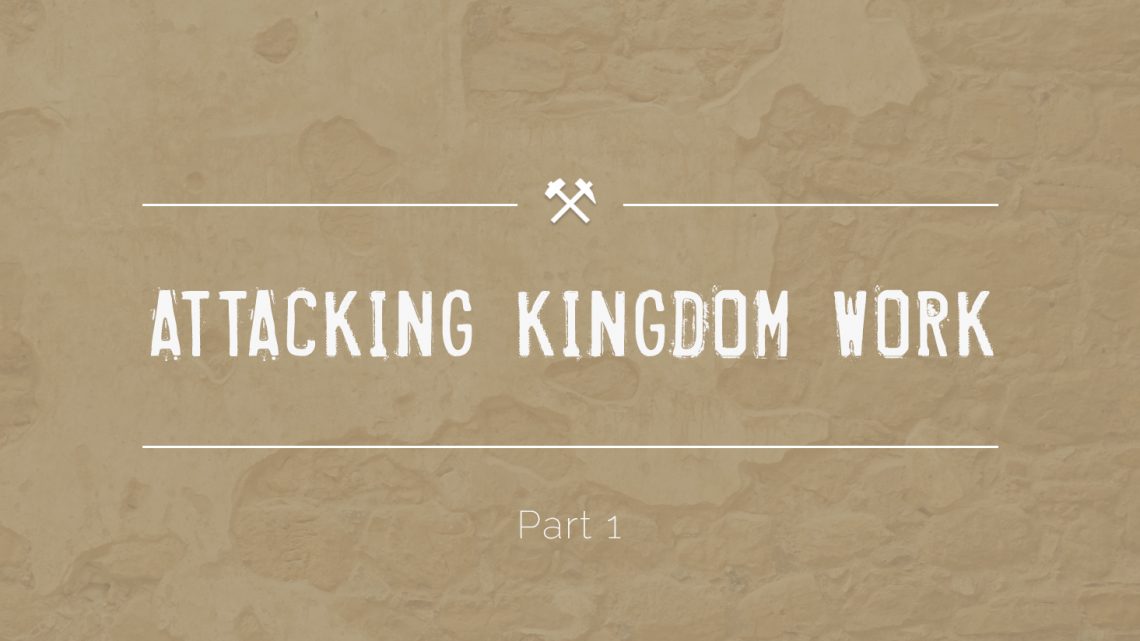The word “if” can be both powerful and dangerous. I’ve recently been enjoying a Japanese animated movie that explores this idea. The movie, entitled “Fireworks,” is about a boy named Norimichi who accidentally discovers a way to rewind time for the express purpose of taking a different path in a specific situation. In particular, Norimichi likes a girl named Nazuna, but various obstacles keep preventing their time together. After he realizes he can turn back time and get a do-over, he uses this ability to extend his time with Nazuna. His choices, however, are not without consequences. This movie has caused me to reflect a lot on the word, “if.”…
-
-
Submitting To Christ: A Ditch On Both Sides Of The Road
One thing all Christians should agree on is that Jesus is King. He came to announce and inaugurate the Kingdom of God (Mk. 1:14-15), and through his death and resurrection, he has ascended to the throne as King of kings and Lord or lords (1 Tim. 6:15, Rev. 19:16). Part of having Jesus as King means he has absolute authority (Eph. 1:17-23). All things are under his control, and he has the authority to exercise his will as he pleases. At some point, Jesus’ authority will collide with our will, and what we do at that point shows whether we truly honor him as King. There will be times when…
-
Written On The Heart
We all know Proverbs as a book of wisdom which shares important guidance for Godly living. Many of the proverbs contained with the book are simple and concise: “a slack hand causes poverty, but the hand of the diligent makes rich” (10:4); “Whoever goes about slandering reveals secrets, but he who is trustworthy in spirit keeps things covered” (11:13); “The simple believes everything, but the prudent gives thought to his steps” (14:15). These are typically the ones that stand out in my mind as I try to apply the wisdom of Proverbs to my life. However, even within a book like Proverbs, there are statements that point us to some…
-
Jesus’ Resurrection: Traditional vs. Transitional
Introduction One of my favorite topics to study in the Bible is the resurrection of Jesus. Of course, it is central to our faith, so that makes sense. However, both personally and academically, the study holds great interest to me, especially in regards to its historicity. My final paper in grad school was on the Pauline Apologetic For The Resurrection from 1 Cor. 15, and it is my studies on the resurrection that most helped me when dealing with a phase of intense doubt about the truth of Christianity in my early 20s. I am convinced that the historicity of Jesus’ resurrection is an important topic, and one that needs…
-
Attacking Kingdom Work: Handling Criticism
In my previous post, I looked at how Nehemiah’s critics approached their opposition of him. Two men especially – Sanballat and Tobiah – did not want to see the wall built or the Jewish people helped in any way, so they make desperate attempts to oppose Nehemiah and his work. We, too, can expect this kind of criticism and opposition, especially when we are doing Kingdom work that honors the name of our Lord. While we saw the kinds of criticism we can expect based upon Nehemiah’s experience, an important question remains: how should I handle criticism when it comes? Before we answer this question, I want to back up…
-
Attacking Kingdom Work: 3 Steps Of Opposition
Criticism and opposition are to Kingdom work what death and taxes are to life: a certainty. If you’re producing fruit for God’s kingdom, you can be sure that the enemy will not be happy, and he will use others to attack you. These attacks can be a destabilizing force, throwing off your focus and keeping you from being as fruitful as you wish to be. This is especially the case when you do not anticipate it and prepare for it. Thankfully, scripture gives us some great examples to learn from, and for this particular challenge, Nehemiah is among the best. Nehemiah was the cupbearer of King Artaxerxes of the Persian…
-
Why Unity Matters
In John 17, shortly before his betrayal and arrest, Jesus prayed some incredibly important words for the church: “20 “I do not ask for these only, but also for those who will believe in me through their word, 21 that they may all be one, just as you, Father, are in me, and I in you, that they also may be in us, so that the world may believe that you have sent me. 22 The glory that you have given me I have given to them, that they may be one even as we are one, 23 I in them and you in me, that they may become perfectly…
-
The Destroyer Of Christian Community
“Those who love their dream of Christian community more than the Christian community itself become destroyers of that Christian community.” Thus wrote (in paraphrase) Dietrich Bonhoeffer in his book “Living Together.” Bonhoeffer understood something which many of us struggle to accept – Christian community isn’t easy. Especially in a modern society so used to material comfort, we don’t like when our Christian communities get uncomfortable. We want things to be easy and without conflict. Nevertheless, real, authentic Christian community is going to be messy and challenging. That is because real, authentic Christian community is like a family. We get angry at family. We disagree with family. We get hurt by…
-
Foreign Languages & Foreign Ideas
I have learned two foreign languages in my life. The first was French which I studied all the way through both high school and college. I even spent a semester abroad in Belgium, where I worshiped with a French speaking church. The second I learned as an adult, when my family moved to Japan. Although I learned some Japanese as a child, it only involved simple phrases and counting to ten. As an adult, I went through the arduous process of achieving some degree of fluency, enough to work as a missionary in the country. I could give a lot of advice about learning a foreign language. Of course, you…
-
Fear & Talents
One aspect that has long stood out to me regarding the parable of the talents in Matthew 25 is the motivation for the wicked servant. What drove him to literally bury his portion instead of using it to produce more for his master? What caused him to sit on his hands until his master returned? Quite simply: fear. He was afraid of his master. He was afraid that he might use the portion unwisely, and end up squandering an incredible opportunity. He was so afraid of what would happen if he took any risks, that he did the one thing his master apparently disliked the most – nothing. Fear is…










